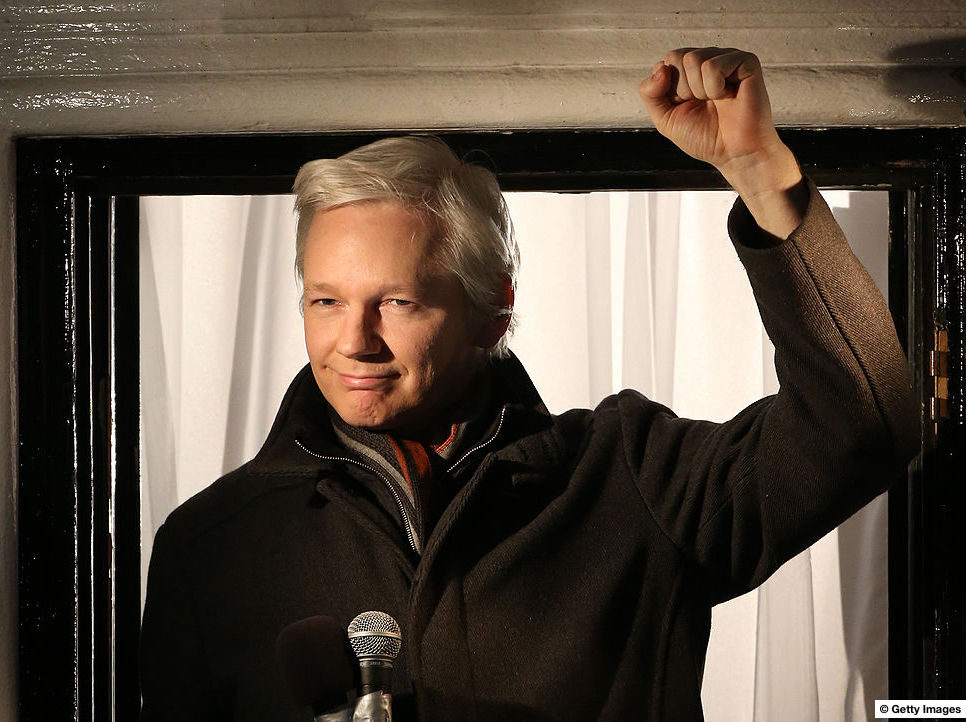Is Julian Assange a hero? The journalist-activist has been fighting a legal battle for his freedom for 14 years. Today may decide if he will spend the rest of his life in prison.
WikiLeaks founder faces 175 years in US jail
 Fight or flight: Assange spent seven years claiming asylum in the Ecuadorian embassy.
Fight or flight: Assange spent seven years claiming asylum in the Ecuadorian embassy. Glossary
High Court - In England and Wales, a court that deals with particularly important cases, or those that involve large sums of money.
WikiLeaks - A whistleblowing platform founded by Julian Assange. It has published news leaks and classified documents obtained by anonymous individuals.
State Department - In the US, the government department responsible for foreign policy and international relations.
Guantanamo Bay - A US military base in Cuba. It is known for its infamous detention camp, a military prison which opened after the 9/11 attacks, where some people were kept without trial.
Yemen - The poorest country in the Gulf region is in the midst of a humanitarian crisis.
Amnesty International - An international non-governmental organisation focused on human rights.
Extrajudicial - Not authorised by law.
Dissidents - People who publicly disagree with or criticise an authority or government, especially an oppressive one.
Belarusian - From Belarus, a country of 9 million in eastern Europe. It is often described by the media as "Europe's last dictatorship".
Election-rigging - Deliberately altering the results of an election.
Edward Snowden - Known for leaking classified information from the USA's National Security Agency in 2013. He moved to Russia to avoid arrest.
Curate - To carefully choose, arrange, and present different items in order to get a particular effect.
